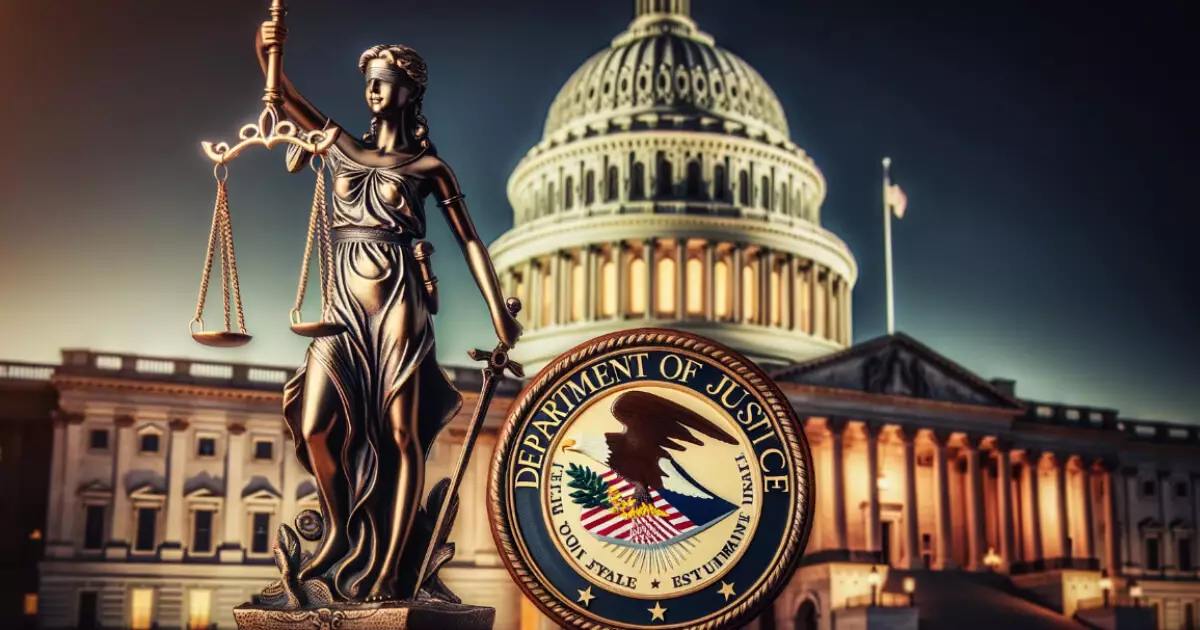U.S. lawmakers are increasing the pressure on the Justice Department to investigate Binance and Tether for their alleged involvement in facilitating substantial illicit financing, including providing material support to terrorist groups such as Hamas. This article delves into the concerns raised by lawmakers, the potential consequences for the companies involved, and the broader implications for the cryptocurrency industry as a whole.
In a letter addressed to Attorney General Merrick Garland, Sen. Cynthia M. Lummis (R-WY) and Rep. French Hill (R-AR) emphasized the need for “decisive action” if Binance and Tether are found to be complicit in illicit financing. Senator Lummis took to Twitter to express her concerns and urged the Justice Department to complete its investigation and consider criminal charges against the two firms. The allegations include acting as intermediaries for Hamas and engaging in illicit activities.
Lawmakers raised issues surrounding Binance’s history of ties to illicit financing and its failure to freeze accounts connected to Hamas, which could potentially constitute providing material support to terrorists under federal law. Additionally, Binance’s alleged willful neglect of anti-money laundering diligence requirements further adds to the scrutiny it faces. On the other hand, Tether, despite reportedly freezing Hamas-linked addresses at the request of Israeli authorities, still faces compliance questions.
Amidst the increasing global scrutiny of cryptocurrencies and their potential role in sanctions evasion and terrorism financing, the outcome of the Justice Department’s investigation and any subsequent actions could significantly influence policy and enforcement regarding illicit crypto financing. However, it is crucial to differentiate between companies striving for compliance and those exploiting the technology unlawfully. The lawmakers emphasized that the actions of a few bad actors should not cast suspicion on the entire industry, as most companies in the crypto space aim to comply with regulations.
The letter also expressed concerns over the potential impact on lawful innovation if the actions of a few unscrupulous actors tarnish the reputation of the entire industry. While the pseudonymity of cryptocurrencies does present risks of abuse, it is vital to recognize that the majority of crypto companies are committed to operating within legal frameworks.
Binance, an unregulated exchange based overseas, has faced previous allegations of facilitating illicit transactions. Media reports have revealed that numerous Binance accounts were linked to Hamas, leading Israel to reportedly order the closure of over 100 additional accounts. The lawmakers argue that Binance’s provision of accounts to terrorist organizations, despite public knowledge of the issue, potentially constitutes material support to terrorists under U.S. law.
The scrutiny surrounding Binance and Tether’s alleged ties to illicit financing has heightened the calls for a thorough investigation by the Justice Department. The outcome of the investigation could have far-reaching implications for policy and enforcement related to illicit crypto financing. It is essential to distinguish between compliant companies and those engaging in unlawful activities to ensure that lawful innovation in the cryptocurrency industry is not unduly stifled. The controversy serves as a reminder that while crypto presents opportunities for innovation and efficiency, it is crucial to address regulatory concerns to safeguard against abuse and maintain trust in the sector.

